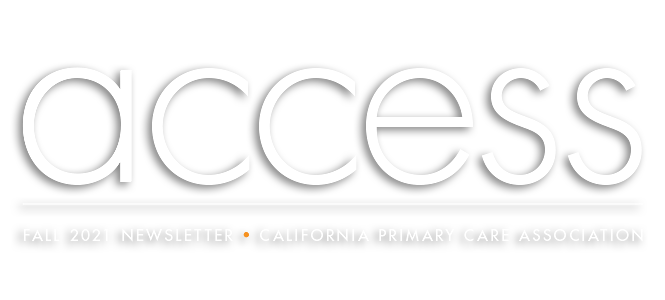
A New Payment Opportunity for FQHCs
FQHCs will soon have the chance to apply for a new payment opportunity in California. This historic moment comes after approximately two decades of the Prospective Payment System (PPS) being in place. This new opportunity - an alternative payment methodology (APM) - aims to build on the best parts of PPS, while helping FQHCs stabilize payment and leverage more of their care teams to deliver even better patient-centered quality care.
Talks Continue Between CPCA and DHCS that Will Ensure Permanent Telehealth Flexibilities
Shutting down was never an option for California’s community health centers (CHCs). Instead, CHCs seized the moment. In March 2020, nearly overnight, the very institutions that had been limited by draconian guidance on how, and when, telehealth could be utilized, were proving that care via synchronous video and audio modalities could improve access, maintain complex care needs, expand behavioral health services, and provide hope.
CalAIM Enhanced Care Management and Community Supports Launching in 2022
After significant timeline disruptions due to the pandemic, several of the California Advancing and Innovating Medi-Cal (CalAIM) proposals are set to launch next year. CalAIM is a multiyear, layered approach to transform California’s Medi-Cal program, with a special attention to social services and supports for the millions of Californians with the most complex needs. CalAIM marks an incredible opportunity to align systems, integrate wholistic care and focus more intentionally on prevention, early intervention, and wrap around supports.

Fighting the Flu Together – Increasing Flu Vaccination Coverage Amongst Health Center Patients
Experts warn of a potential “Twindemic” as both the seasonal influenza (flu) and SARS-CoV-2 (the virus that causes COVID-19) viruses circulate this fall and winter. Last year’s COVID-19 mitigation strategies (shelter-in-place, masking, social distancing, school closures) appeared to decrease flu activity, but as many pandemic restrictions have lifted, flu activity may again increase this season.
Leadership Equity Program - Launching in Early 2022!
CPCA will launch the inaugural Leadership Equity Program (LEP) cohort at the end of January 2022. The program offers both a cohort-based program for participating emerging leaders as well as capacity-building for their respective community health center (CHC) organizations - to achieve our vision to collectively strengthen community health centers' capacity to achieve just, healthy and equitable communities across California.
CPCA’s Statement on Antiracism
In September, CPCA Leadership adopted a statement on the importance of being an antiracist organization, which outlines not only the values that guide CPCA’s antiracism work, but also identifies the internal commitments aimed at dismantling workplace inequities and creating space for inclusion and racial justice.
Defining & Deploying Mission-Critical Talent: CPCA's NEW Strategic Workforce Planning Program
Competitive labor market. Skill gaps and shortages. Challenging recruitment and turnover. An aging workforce. The COVID-19 pandemic is causing rapid and long-lasting changes to workforce planning. The way in which community health centers (CHCs) train, recruit, and retain their staff is changing in this evolving environment. The lessons learned from reorganizing teams and reimagining systems is creating a new mindset for developing a diverse healthcare workforce.

2021 Annual Conference - A Virtual Event to Remember!
CPCA closed out a landmark year of virtual conferences with our 2021 Annual Conference: “Building Upon Resiliency: The Road to Health Equity.” The weeklong conference offered an opportunity for attendees to connect and learn while keeping each other safe as we continue to navigate the COVID-19 pandemic. This year’s conference focused on renewal and building strength within community health centers so that we can ultimately achieve the goal of healthy, equitable communities.






